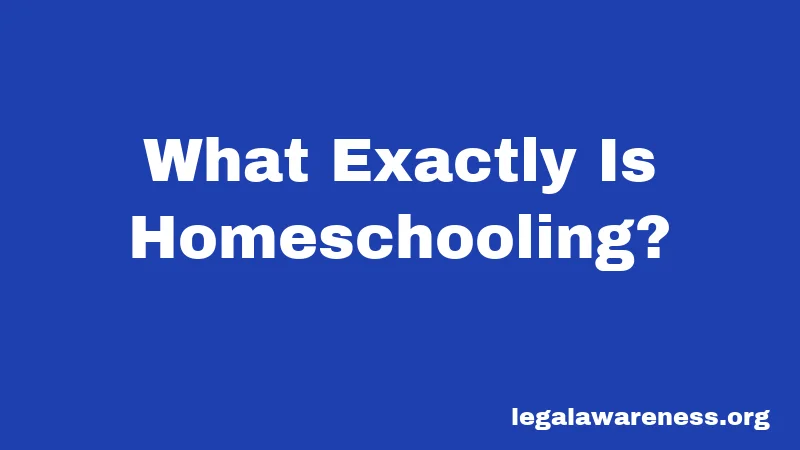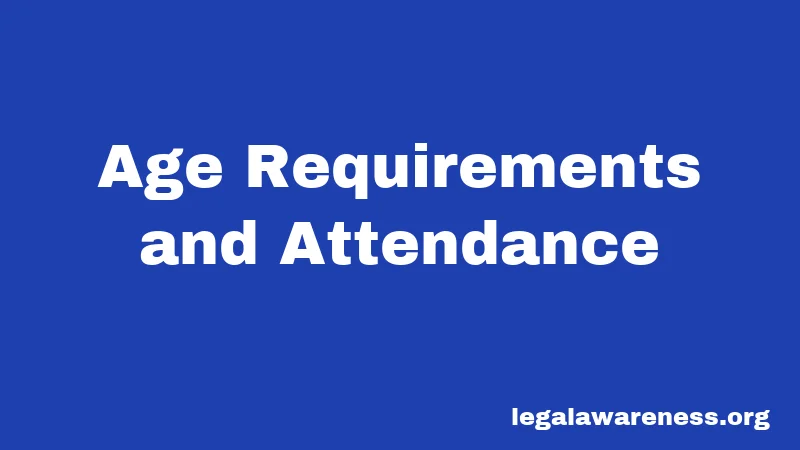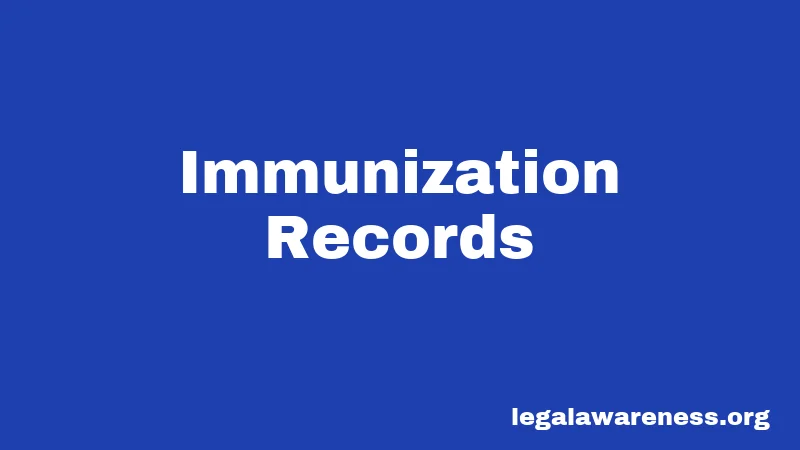North Carolina Homeschool Laws in 2026: Everything Parents Should Know
Thinking about homeschooling your kids in North Carolina? You’re not alone. Thousands of families are choosing this path. But here’s the thing: North Carolina has specific rules you need to follow. Some of them might surprise you. The good news? Once you understand the basics, it’s totally doable.
This guide breaks down everything you need to know. We’ll cover what’s required, how to get started, and what happens if you mess up. By the end, you’ll have a clear roadmap.
What Exactly Is Homeschooling?

In North Carolina, homeschooling isn’t just teaching your kids at home. It’s officially registering your home as a non-public school. Seriously. That’s the legal difference.
North Carolina law defines a homeschool pretty specifically. It’s a non-public school with kids from no more than two families. So you can’t combine ten families together—that wouldn’t be a homeschool anymore. It would be something else. You get to decide what your kids learn, how they learn it, and who teaches them. That’s the real freedom of homeschooling.
Basic Requirements to Get Started
You Need a High School Diploma (Or Equivalent)
Let’s start with the first requirement. You must have at least a high school diploma or GED. That’s it. No special teaching license needed. No certification required. If you don’t have your diploma? No problem. You can hire a private tutor instead.
Wondering what counts as “equivalent”? Proof of military and/or college enrollment or completion will suffice. So if you went to college, you’re good. Joined the military? That works too.
File a Notice of Intent (This Is Important)
Here’s where it gets official. You must file a Notice of Intent with North Carolina’s Division of Non-Public Education (DNPE). This tells the state you’re starting a homeschool.
The good news? You only file this once. When you’re establishing your homeschool for the first time, you file. If you ever stop homeschooling and restart it later, then you file again. But while you’re going, you don’t refile every year.
Stay with me here—the timing matters. You can file beginning July 1st. The deadline is the end of April. So you have a big window of time. Pick a date that works for you.
Choose a Name (And Follow the Rules)
Your homeschool needs a name. Seems simple, right? Well, there are actual restrictions. You can’t use certain words.
Banned words include “charter,” “public,” “elementary,” “grade,” “high school,” “college,” and “university.” You also can’t use the name of a curriculum you’re using (like MiaAcademy or similar). The reason? To avoid confusion with actual private schools or charter schools.
Pick something academic-sounding. Something appropriate for a high school diploma. Because guess what? Your kid’s diploma will have your homeschool’s name on it. So choose wisely.
Age Requirements and Attendance

When Your Kids Have to Attend
North Carolina has a compulsory education law. It’s not optional. Children ages 7 through 16 must attend school. That’s the law. Public school, private school, or homeschool—but they have to be in one of those.
Here’s the flexibility part: You can start homeschooling before age 7. You can continue after age 16. But those ages 7-16? That’s mandatory.
How Many Hours and Days?
Your homeschool must operate for at least nine months each year. That’s roughly 180 days. Regular schedule, reasonable holidays. You’re not teaching during Christmas break or summer vacation.
How many hours per day? Here’s something cool: North Carolina doesn’t actually require a specific number of hours. The state recommends about five hours of instruction per day. But it’s not a hard legal requirement.
This is one reason parents love North Carolina. You get flexibility on timing while still meeting the legal requirement.
Keep Attendance Records
You must keep attendance records. Every single day. Show how long your child attended and what they studied. This seems like a lot, but honestly? It’s basic. A simple notebook or spreadsheet works fine.
The DNPE can ask to see these records at any time. It’s unlikely, but possible. So keep them organized and ready.
Testing: The Annual Requirement
You Must Test Your Child Every Year
Here’s one requirement that surprises parents: Your child must take a standardized test every single year. No exceptions. No options.
The test must measure these subjects: English grammar, reading, spelling, and math. Those four areas. That’s it. It doesn’t have to cover science or history or anything else. Just those four.
You buy the test yourself. Your homeschool won’t provide it. Common tests used in North Carolina include the CAT, ITBS, and Stanford Achievement Test. You can purchase these online or through testing companies.
What Happens to the Test Results?
After testing, you keep those scores at your homeschool’s main office. For one full year, they need to be easily available. The DNPE can request to see them during an inspection.
After that year? You can throw them away if you want. But honestly, most parents keep them longer. It’s good documentation of your child’s progress.
No Curriculum Requirement—But Standards Matter
Here’s something beautiful about North Carolina: There’s no required curriculum. None. You pick what your child learns.
But—and this is important—the DNPE recommends teaching content that’s at least similar in quality, scope, and duration to local public schools. Don’t interpret this as permission to skip subjects. It means your homeschool curriculum should be legitimate and comprehensive.
A pro tip: Before you start, talk to your local school district. Ask how they would place your child if you ever decided to re-enroll. This gives you a standard to aim for.
Immunization Records

You Must Have Immunization Records
Every child in your homeschool needs current immunization records. This isn’t optional. You get these from your child’s doctor or health care provider.
North Carolina does allow medical and religious exemptions. If you qualify for an exemption, you get paperwork to prove it. Get that paperwork in writing and keep it on file.
Think of this like a health insurance form. It’s required, but it’s also fairly straightforward. Your doctor handles most of the work.
Now, Here’s Where Things Get Serious
What happens if you don’t follow the rules? Let’s talk about the consequences.
If your homeschool doesn’t meet the legal requirements, the DNPE will notify your local public school superintendent. That superintendent can then take action. This might mean your child is required to enroll in public school. Or you might be ordered to fix the violations.
It’s serious business. So don’t skip the requirements thinking they won’t notice. They can and do follow up.
What You Should Keep On File
Required Records
Attendance records for each student. Immunization records. Standardized test results from the past year. That’s the minimum.
Recommended (Not Required, But Smart)
A daily log or lesson plan book. Seriously. Write down what you taught each day. Include the time spent on each subject. Keep this for the entire year. Why? It’s proof you’re actually teaching. It shows the quality of your instruction.
Report cards or progress notes. Records of any extracurricular activities. Documentation of field trips or learning experiences. Basically, anything that proves your child is getting an education.
Not sure what to keep? That’s totally normal. Basically, save anything that shows your child is learning.
Special Situations and Flexibility
Can My Child Play Sports?
Want your homeschooled kid to play school sports? That’s between you and the school district. Some allow it. Some don’t. Rules vary by district. Contact your local school’s athletic director and ask. They’ll tell you their specific policy.
This is one area where you need to check locally. There’s no statewide rule.
What About Special Education Services?
Families with kids who have special needs often ask this. Here’s the honest answer: It’s complicated. Your child might be eligible for certain services, but you’ll need to work with your school district directly. They handle those decisions.
Can I Use Online Schools or Co-ops?
The law now allows this. You can hire tutors. Your child can attend group instruction like co-ops or 4-H classes. They can learn from an expert who visits your home (like an apprenticeship with a specialist). You have flexibility here.
The key requirement? You still must file a Notice of Intent with DNPE. Your homeschool still must meet all other requirements. But how you structure the learning is up to you.
Moving Out of State?
If you move out of North Carolina, you must notify DNPE that your school is closing. You can’t just stop and hope they don’t notice. Close it officially through their website. Then follow the rules of your new state.
How to Get Started Step-by-Step
Step 1: Make Sure You Qualify
Do you have a high school diploma or equivalent? Yes? Great, move forward. No? Decide if you’ll get one or hire a tutor.
Step 2: Choose a School Name
Pick something academic. Something you’d be proud to see on a high school diploma. Check that it doesn’t use banned words. Keep it simple.
Step 3: File Your Notice of Intent
Go to the DNPE website after July 1st. Create an account. Fill out the Notice of Intent form. Include your name, address, the school name, and proof of your diploma. Submit it online.
You can also mail it certified mail if you prefer. The address is on the DNPE website.
Step 4: Get Your Documents Ready
Order your standardized test. Set up a system for tracking attendance. Get immunization records. Organize everything so it’s easy to find.
Step 5: Start Teaching
You’re officially a homeschool now. Create a daily routine. Stick to the nine-month requirement. Keep detailed records.
Step 6: Test Your Child
Once a year, administer the standardized test. Keep those scores accessible. Update your attendance records. Stay organized.
Step 7: Annual Updates
Check in with DNPE’s system each year. Update any information that’s changed. Make sure your records are current.
It sounds like a lot. Honestly? Most families say it’s easier than they expected.
Frequently Asked Questions
Can I homeschool before age 7? Yes. You can start whenever you want. The compulsory education law kicks in at age 7. Before that, it’s optional.
Do I need a teaching degree? No. Just a high school diploma or equivalent. No special credentials required.
What if I fail to file my Notice of Intent? That’s a problem. Your homeschool isn’t officially recognized by the state. You could face legal consequences. File it.
Can my child graduate with a real diploma? Yes. You issue the diploma as the homeschool. It’s a legitimate diploma, not a GED. Your child can use it for college applications.
What if my child wants to go to traditional school later? They can. Bring your records to the school. They’ll evaluate your child’s progress and place them appropriately. Most schools handle this smoothly.
Are there costs to homeschooling? Filing the Notice of Intent is free. Testing costs money—usually $50-150 per year. Curriculum costs depend on what you choose. Some families spend minimal money. Others spend more. It’s your choice.
Can I change my homeschool’s name? No. Once you file your Notice of Intent with that name, you can’t change it. So choose carefully.
What happens if my child doesn’t pass the standardized test? One low test score won’t get you in trouble. But if your child consistently fails, DNPE might investigate. Make sure your child is actually getting an education.
Is there state funding for homeschoolers? Some programs offer funding or tuition assistance for homeschooling families. Check with DNPE’s website for current opportunities.
What if I disagree with a DNPE decision? You have the right to appeal. Ask DNPE about their appeals process if this happens.
Final Thoughts
North Carolina’s homeschool laws are actually pretty reasonable compared to other states. You have flexibility, but you also have responsibilities. The requirements exist to make sure kids actually get educated—which is a good thing.
Now you know the basics. The compulsory ages. The testing requirement. The paperwork you need to file. The records you must keep. Start with a Notice of Intent. Keep good records. Test annually. You’ll be fine.
When in doubt, visit the DNPE website or contact them directly. They’re surprisingly helpful, and they want families to succeed.
You’ve got this. Homeschooling in North Carolina is absolutely doable.
References
- NC Division of Non-Public Education (DNPE) – Home Schools
- Starting a Home School in North Carolina – Requirements & Recommendations
- North Carolina General Statute § 115C-563(a)
- Home School Legal Defense Association – North Carolina
- NC Department of Health and Human Services – Immunization Exemptions
